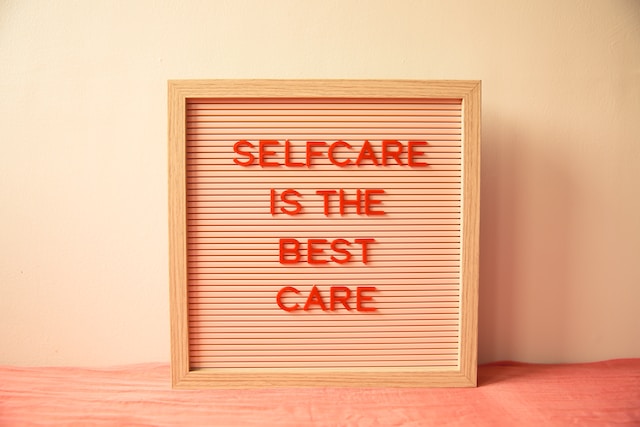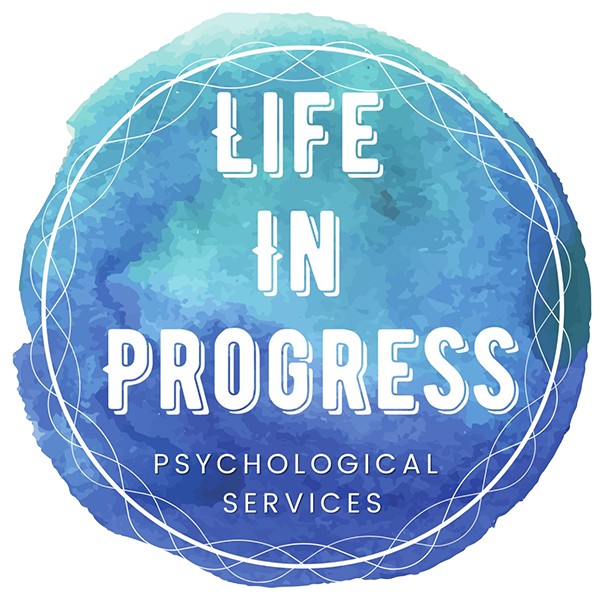Whether you are seeking therapy for specific challenges or personal development, making the most of each session is crucial to maximize progress and achieve desired outcomes. In this blog, we will explore actionable tips that you can implement today to enhance your therapy experience and maximize the benefits!

Self-Awareness: The Foundation of Growth
Self-awareness is the cornerstone of personal development and progress in therapy. Understanding your emotions, thoughts, and behaviors can offer valuable insights into patterns that may be contributing to your challenges or hindering your growth. Here are a few ways you can cultivate self-awareness:
Journaling: Take a few minutes each day to journal your thoughts, feelings, and experiences. Reflecting on your journal entries can help you identify recurring themes and gain clarity on your emotions. This is valuable information that is helpful to share with your therapist to further assist in processing.
Mindfulness Practices: Practice mindfulness meditation or other grounding techniques to stay present and in tune with your thoughts and sensations. YouTube, Spotify or apps like Insight Timer have some great options!
Seek Feedback: Reach out to trusted friends or family members for feedback on your strengths and areas for growth. Gaining insight from others can offer a different perspective on your journey and enhance your understanding of yourself.

Set Clear and Realistic Goals
Establishing clear and realistic goals is vital in therapy. Goals provide direction and purpose to your therapeutic journey, ensuring that each session addresses your specific needs and desires. When setting goals:
Be Specific: Take the time to reflect on what specific areas of your life you want to improve or work on. It could be related to managing anxiety, improving relationships, building self-confidence, or addressing past traumas. The more specific and clear you are about your goals, the better I can tailor the treatment to meet your needs. This clarity will also help you stay focused during therapy sessions and make the most of our time together.
Make Them Measurable: To track your progress effectively, identify measurable indicators related to your therapy goals. For instance, if you’re working on managing anxiety, you might track the frequency or intensity of anxiety episodes over several weeks. For improving relationships, you could measure the quality and frequency of positive interactions with your loved ones. Having measurable goals allows you to see the concrete impact of your efforts and provides motivation as you witness your growth.
Break Down Goals: Dividing your larger therapy goals into smaller, manageable steps can make the process less overwhelming and more attainable. Break down each goal into actionable tasks that you can work on in therapy and in your daily life. For example, if your goal is to build self-confidence, start with small challenges that gradually stretch your comfort zone. As you achieve these smaller milestones, take time to celebrate your progress, reinforcing your motivation to continue growing.
Embrace Vulnerability and Openness
Being open and vulnerable in therapy fosters a safe and supportive environment for self-expression and healing. To embrace vulnerability:
Share Authentically: Therapy is a safe and confidential space where you can express yourself without fear of judgment. To make the most of your therapy sessions, it’s essential to share authentically with your therapist. Be open about your emotions, even if they feel challenging or uncomfortable. I am there to support you, and the more transparent you are, the better I can understand your unique experiences and offer guidance tailored to your needs.
Release Self-Judgment: It’s common to be self-critical or feel ashamed of certain thoughts or behaviors. In therapy, it’s crucial to release judgment and understand that everyone faces challenges and vulnerabilities. Your therapist is not there to judge you but to provide a compassionate and non- judgmental environment for your growth and healing. By embracing self-compassion and acknowledging your humanity, you create space for personal acceptance and growth.
Express Your Emotions Freely: Therapy is an opportunity to explore your emotions and gain insights into their underlying causes. Embrace the opportunity to express your feelings honestly, whether they are joy, sadness, anger, or fear. Being emotionally open in therapy enables your therapist to understand your emotional landscape better and support you in processing and navigating complex emotions. Remember that expressing emotions is a healthy and essential part of the therapeutic process.
Actively Engage in the Therapeutic Process
Active engagement in therapy is key to making progress. Take an active role in your sessions by:
Asking Questions: Therapy can involve various techniques and approaches that may be new or unfamiliar to you. Don’t hesitate to ask questions. Inquiring about the rationale behind specific interventions or strategies can help you grasp their purpose and relevance. Being curious and seeking information empowers you to actively engage in your therapy journey and build a stronger therapeutic alliance with your therapist.
Voice Concerns: Effective therapy requires open communication and trust between you and your therapist. If you find a particular therapy approach or exercise challenging or ineffective, it’s essential to voice your concerns openly and honestly. I value your feedback and can adjust the treatment plan based on your needs and preferences. Sharing your concerns allows for a collaborative and tailored approach to therapy, increasing its effectiveness and helping you feel more supported.
Collaborate with Your Therapist: Teamwork makes the dream work! Therapy is collaborative, and your active participation is integral to its success. Be open to sharing your thoughts and feelings during sessions and be receptive to insights and observations shared with you. Trust in your therapist’s expertise while also contributing your unique perspectives on your experiences. Together, we can co- create a treatment plan that aligns with your goals, making therapy a dynamic and empowering process.

Practice Mindful Self-Care
Self-care outside of therapy is essential to support your progress and well-being. Engage in mindful self- care practices to nourish your mind, body, and soul:
Prioritize Rest and Sleep: Restful sleep is essential for overall well-being and mental health. Aim to establish a consistent sleep schedule that allows you to get the recommended 7-9 hours of sleep per night. Prioritize creating a relaxing bedtime routine that helps you unwind and prepare for restful sleep. Quality sleep supports emotional regulation, enhances memory consolidation, and improves cognitive functioning, leading to better focus and mental clarity during the day.
Engage in Creative Activities: Creative outlets such as art, writing, or music to express yourself and reduce stress. Creative activities offer an excellent way to express emotions, thoughts, and experiences that may be challenging to put into words. Engaging in creative pursuits like drawing, writing in a journal, or playing a musical instrument can serve as a therapeutic outlet for processing emotions and reducing stress. Creative expression nurtures self-awareness and provides an opportunity for personal growth and self-discovery.
Let’s Get Physical: I know, I know, you probably aren’t at all surprised to see this make the list! Not only is it beneficial for your physical health but also plays a significant role in mental well-being. Regular exercise, such as walking, jogging, yoga, or dancing, releases endorphins, the body’s natural mood boosters. These endorphins reduce stress and anxiety, promote relaxation, and contribute to an overall sense of well-being. Incorporating exercise into your daily routine can have a profound positive impact on your mental health.
3 Ways to Implement What You Learn
Therapy provides valuable insights and coping strategies but implementing them in your daily life is crucial for lasting change. Put what you learn in therapy into action:
Part 1: Experiment with New Strategies
Embrace the Unknown: Therapy provides a safe space to explore new coping strategies and behaviors. Embrace the uncertainty and be open to trying out different approaches.
Practice Mindful Awareness: Engage in self-reflection during and after therapy sessions. Take note of the strategies discussed and consider how they might apply to real-life situations.
Part 2: Monitor Progress
Keep a Journal: Maintain a journal to record your experiences and emotions as you apply new techniques. Reflect on challenges and successes, allowing for a deeper understanding of your growth.
Track Behavior Changes: Monitor how implementing new strategies impacts your daily life. Observe any shifts in emotional reactions, communication patterns, or interactions with others.
Part 3: Celebrate Success
Acknowledge Progress: Celebrate every step forward, no matter how small it may seem. Recognize the courage it takes to challenge old patterns and embrace growth.
Positive Reinforcement: Treat yourself with kindness and compassion. Use positive reinforcement to build confidence in your ability to navigate challenges.
Address Resistance and Challenges
Resistance is a natural part of the therapeutic process, and confronting challenges head-on is essential for growth:
Part 1: Discussing Resistance
Open Communication: Be open and honest with your therapist about any resistance you may be experiencing. Exploring the origins of resistance can provide valuable insights into underlying issues.
Unveiling Underlying Patterns: Resistance may be a protective mechanism rooted in past experiences or defense mechanisms. By discussing it with me, you can uncover underlying patterns that may hinder your progress.
Part 2: Embracing Uncomfortable Feelings
Emotional Exploration: Therapy can bring up uncomfortable feelings as you delve into unresolved emotions. Embrace these feelings as an opportunity for growth and healing.
Growth through Discomfort: Challenging emotions often pave the way for growth. By sitting with discomfort, you allow yourself to process and integrate difficult experiences.
Part 3: Being Patient with Yourself
Healing Takes Time: Understand that healing and growth are gradual processes. Be patient with yourself as you navigate the ups and downs of therapy.
Self-Compassion: Show yourself compassion and understanding during times of struggle. Acknowledge that setbacks are a natural part of the process and an opportunity for learning.
Part 4: Confronting Challenges
Facing Triggers: In therapy, you may encounter triggers that evoke strong emotions. Confronting these challenges with the support of your therapist can lead to profound healing. I will be there every step of the way to offer guidance
Navigating Vulnerability: Therapy can make you feel vulnerable as you open up about deep-seated emotions and experiences. Trusting in the therapeutic relationship can empower you to navigate this vulnerability.

Making the most progress in therapy involves a proactive and engaged approach. Cultivate self- awareness, set clear goals, and be open to vulnerability and new insights. Actively engage in therapy, practice mindful self-care, and implement what you learn in your daily life. Address resistance and embrace challenges as opportunities for growth. Remember that therapy is a collaboration and with dedication, self-compassion, and a willingness to embrace change, you can embark on a path of self-
discovery, healing, and personal growth that empowers you to lead a more fulfilling and emotionally balanced life.

